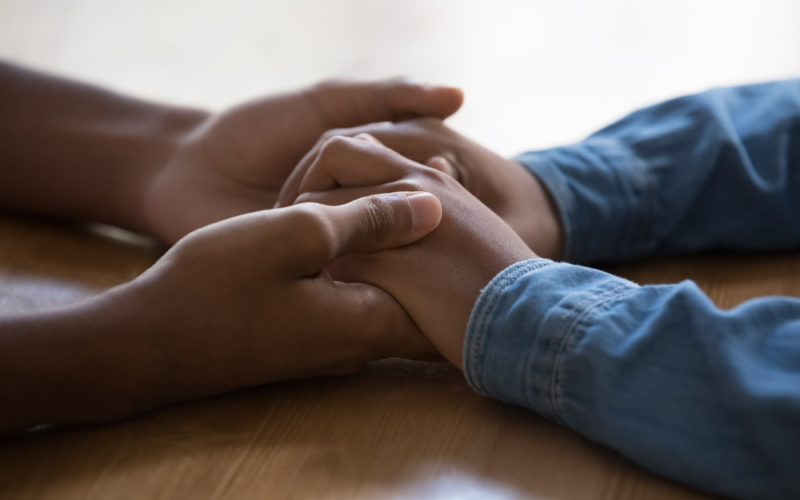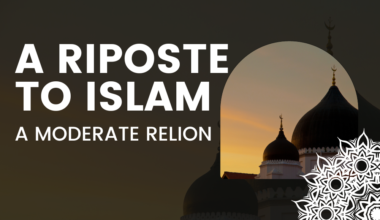That I have always found it very easy to forgive those who have wronged me is not because I am a saint, it is because it makes a lot of sense to me. There is so much schmaltzy rhetoric used in canvassing for forgiveness that eclipses the real thing.
One of the things I like about the purportedly revealed religious literature, like the Bible, that it does not delve into a person’s inner life. It is primarily about what he or she does. It is not how you feel but what you do that matters. Forgiveness is similar: it is not essentially something that you feel, but something that you do.
It is something you can train yourself to do. Forgiveness begins with the refusal to respond in kind, the refusal to answer backbiting with backbiting and treachery with treachery, the refusal to answer violence with violence. It is important to note that you can forgive even if you don’t feel it. Forgiveness is not the mushy feeling of glowing with warmth and love for someone who has seriously harmed us. If you harm my family, there is no way I will be overflowing with love for you. But I can still forgive you. I can refuse to get even or take revenge.
In modern society crime deserves punishment in proportion to its gravity. From this perspective forgiveness appears unjust in that it represents impunity for crime. But at a personal level or at a level below the radar of law, it is a price worth paying. It serves you better and the humanity is also better off by you not kicking the can of resentment down the road. Even from the viewpoint of justice, it is almost impossible to get perfectly even; more often than not there is no end to it as the wheel of anger keeps spinning. Passing by revenge does not make us feel good inside. Nietzsche was right in saying that it does the opposite. But it is the price worth paying for selfish reasons. Study after study has established that forgiving is good for the body as well as the soul. People who forgive usually have more and better relationships with others, feel more contented and more optimistic, and score higher on just about every measure of psychological well-being.
The problem, very often, is that we do not know how to do it. There is no manual or handbook explaining how to navigate life’s betrayals and hurts with forgiveness. It does not come naturally to most of us and, instead, is a skill to be learned. It’s not a long journey as the popular psychology is desperate to have you believe. It is a simple matter of where you go from the mourning that follows harm. Do you get hung on to an existential resentment leading to the revenge that may be in your power or you let go and are ready to move on? The fact is that the world does not owe us to be fair, children are killed, girls are raped, and entire groups are subjected to genocides. The inability to forgive extracts a price. We are made to exist in a fine system of interdependence and resentment shreds the network of interconnectedness. For example, in my relatives and acquaintances, I have many times witnessed sibling quarrels degenerating into intergenerational alienations. When the siblings refuse to talk to one another because of some grievance, their children miss out on the joy of strong relationships, sometime even without knowing what caused the chill. All they know is, “we do not go to see this uncle” or “we are not close to those cousins.” Lack of forgiveness in a family poisons all its relationships, including those of children. Forgiveness does not mean forgetting. It is not about pretending that it doesn’t hurt when it does. Nor is it an invitation to cover up the crack in a relationship. It is not all right to be hurt. It is not all right to be betrayed. It is not all right to be abused. But it still makes sense to forgive.
Forgiveness also has the power to heal nations. It was the dawn of a cold, windy, and rainy morning in July 1964 when a prisoner named Nelson Mandela was brought to Robben Island. Very soon it was evident to the Afrikaner prison officials that their new prisoner was a natural leader of men who commanded great deference among the prisoners. Thus, they singled him out for punishment and humiliation. His fellow prisoners have recounted how, a few years later, guards ordered him to dig and descend into a grave-like ditch in the prison yard. Prisoners witnessing the scene wondered whether this was the end of Mandela. Then, as Mandela lay in the muck, the guards unzipped their trousers and urinated on him. More than two decades later Mandela’s aides asked him to provide a list of the people he wanted to invite to his inauguration dinner as the president of South Africa. One name that Mandela provided and insisted on was that of the jailer who had ordered the above incident. Mandela lived forgiveness. He went to see Betsie Verwoerd, widow of apartheid designer Hendrik Verwoerd, sitting down to tea with her in the whites-only community the hard-liners had carved out for themselves. He donned a green jersey and cheered vociferously to support South Africa’s rugby team in this whitest of sports as they played in the first World Cup after sanctions were lifted. He kept on Mr. de Klerk’s peevish personal assistant as his own, always speaking to her in Afrikaans, which he had learned from his jailers. Before you forget, Mandela was a recalcitrant and militant young man, with an eminently justified rage, who had mastered the art of forgiveness along the path of his life.

While the gravity of offences we suffer may vary, the method to forgiveness is the same. The key to forgiveness is to not be caught up in content, which makes each person’s individual story of grievance. Forgiveness is one of those things where the concept is far simpler than its execution and, thus, invokes a lot of superficiality as such things do. It is less of a moral imperative than a practical matter as it involves your self-esteem, the worth of the person who has hurt you, and your relationship with that person and the larger world. Researchers are now using functional magnetic resonance imaging to map the process. A team at the University of Pisa in Italy asked people to imagine forgiving someone and then observed changes in cerebral blood flow, which signalled the parts of the brain that became more active. They found that several regions “lit up,” especially areas that regulate emotional responses, moral judgments, perceptions of physical pain, and decision making. By creating this kind of neural map, researchers hope to learn more about how forgiveness works on both a physical and a psychological level. Kathleen Lawler-Row, PhD, a psychology professor at East Carolina University, is exploring the relationship between forgiveness and health—physical, emotional, and spiritual. She thinks the consequences of forgiveness go beyond lowering blood pressure and improving sleep. “Once you forgive someone for something very painful, you never experience life the same way again,” she says. “You’re more flexible, less black-and-white in your expectations of how life or other people will be. If there’s one thing that characterizes people who have experienced forgiveness, it’s that kind of larger perspective: I can’t predict what life will hand me, but I’m going to respond to it in this way.”
Forgiveness is a choice we make regardless of the content we are grappling with. Forgiveness neither means amnesia nor rationalizing the abuse. That is bullshit many preachers want you to believe. It is not about condoning the abuse; it is about changing the story of your future. Forgiveness is not an offshoot of love, to be gifted freely to those who have hurt you. Instead it is an equation, benefiting more the person who forgives. Forgiveness is a skill you decide to acquire to deal with many life problems and then you work at developing it. You can start with decisional forgiveness, such as telling yourself, “I am not going to seek revenge” or “I am not going to allow that person to make me feel bitter.” Once you do it, the emotional forgiveness gradually follows as the emotions of hatred, resentment, and hostility start to wither. As Mandela manifested, it all begins with a conscious decision to rise above bitterness and rancour.
And throughout all eternity
I forgive you, you forgive me.
~ William Blake







